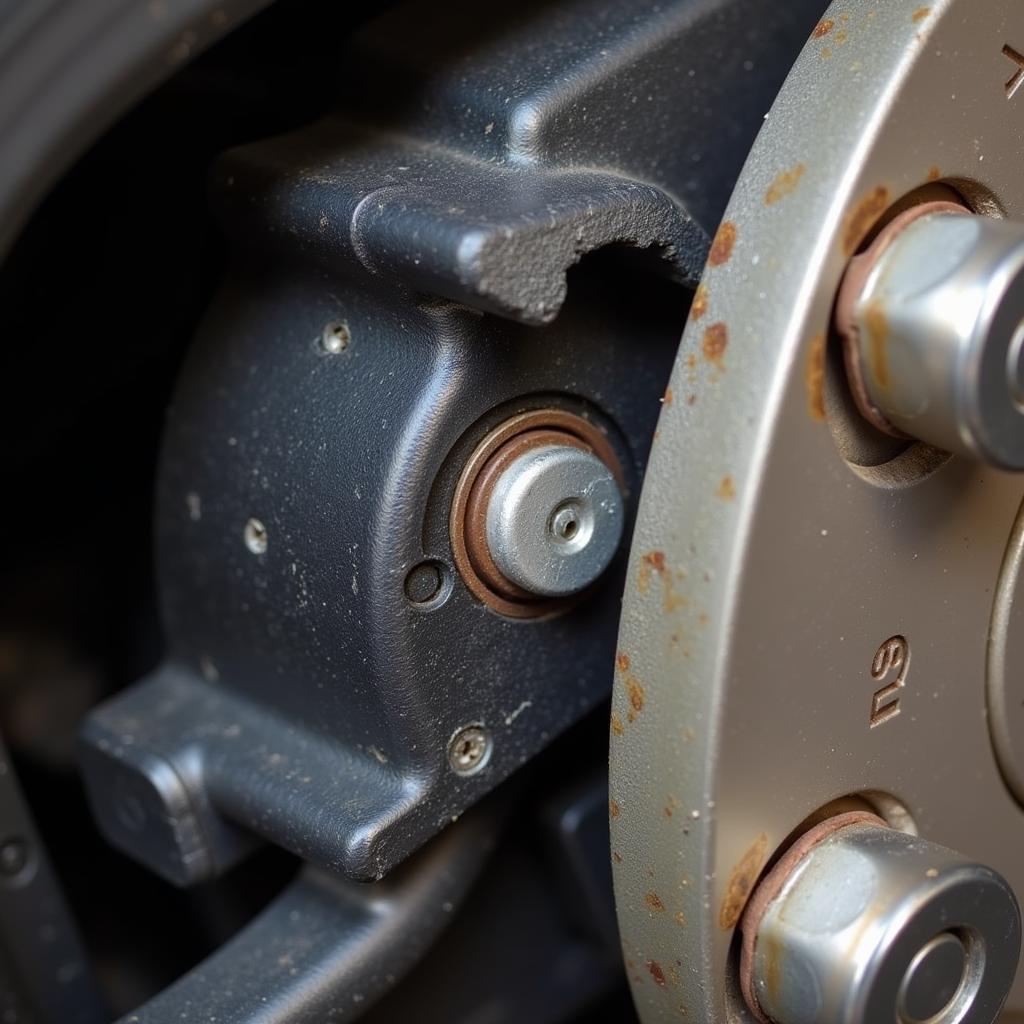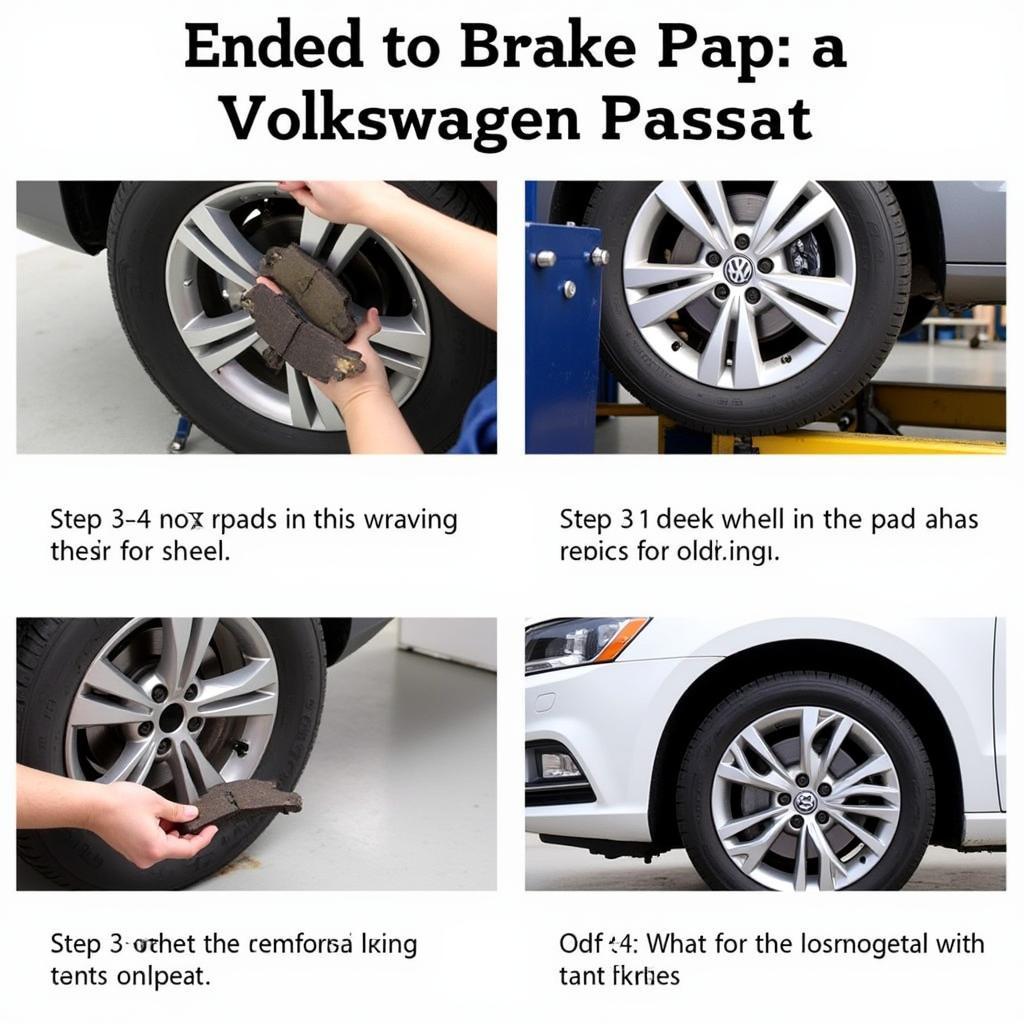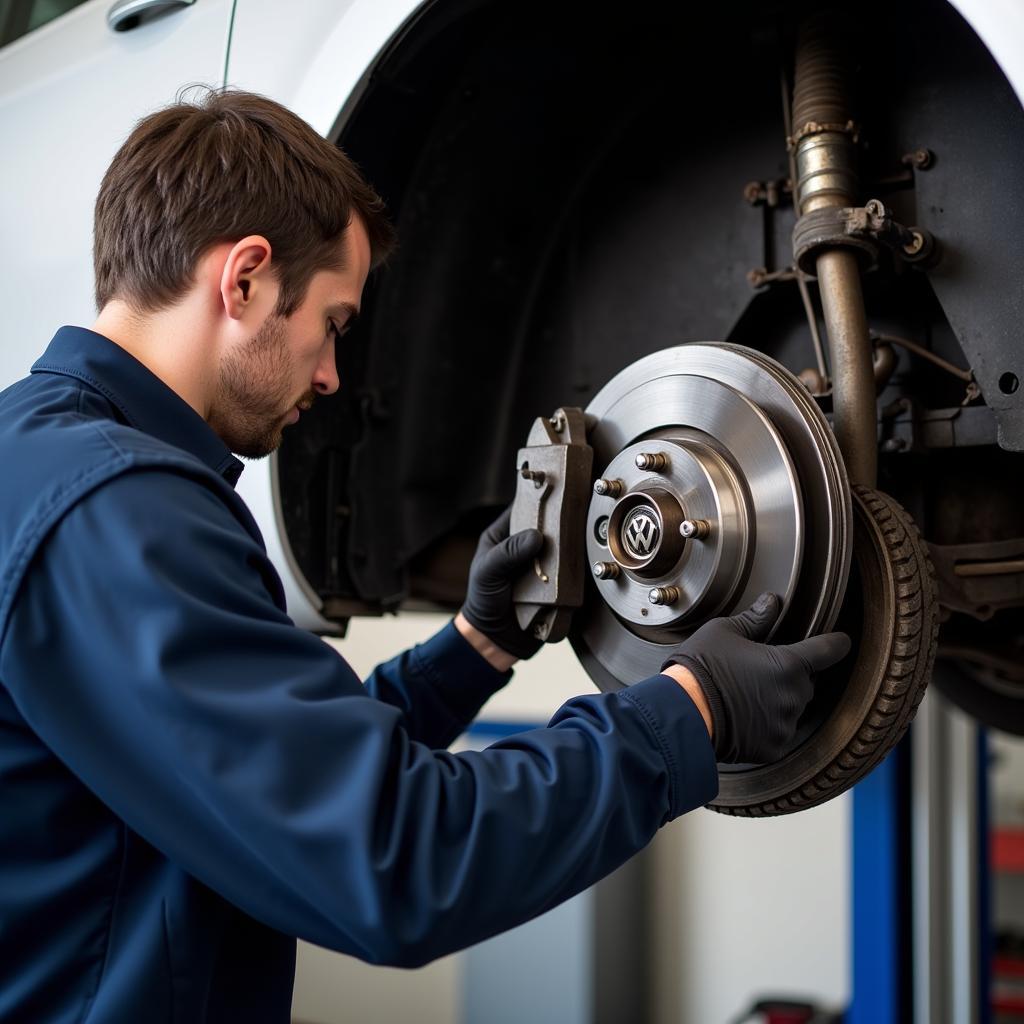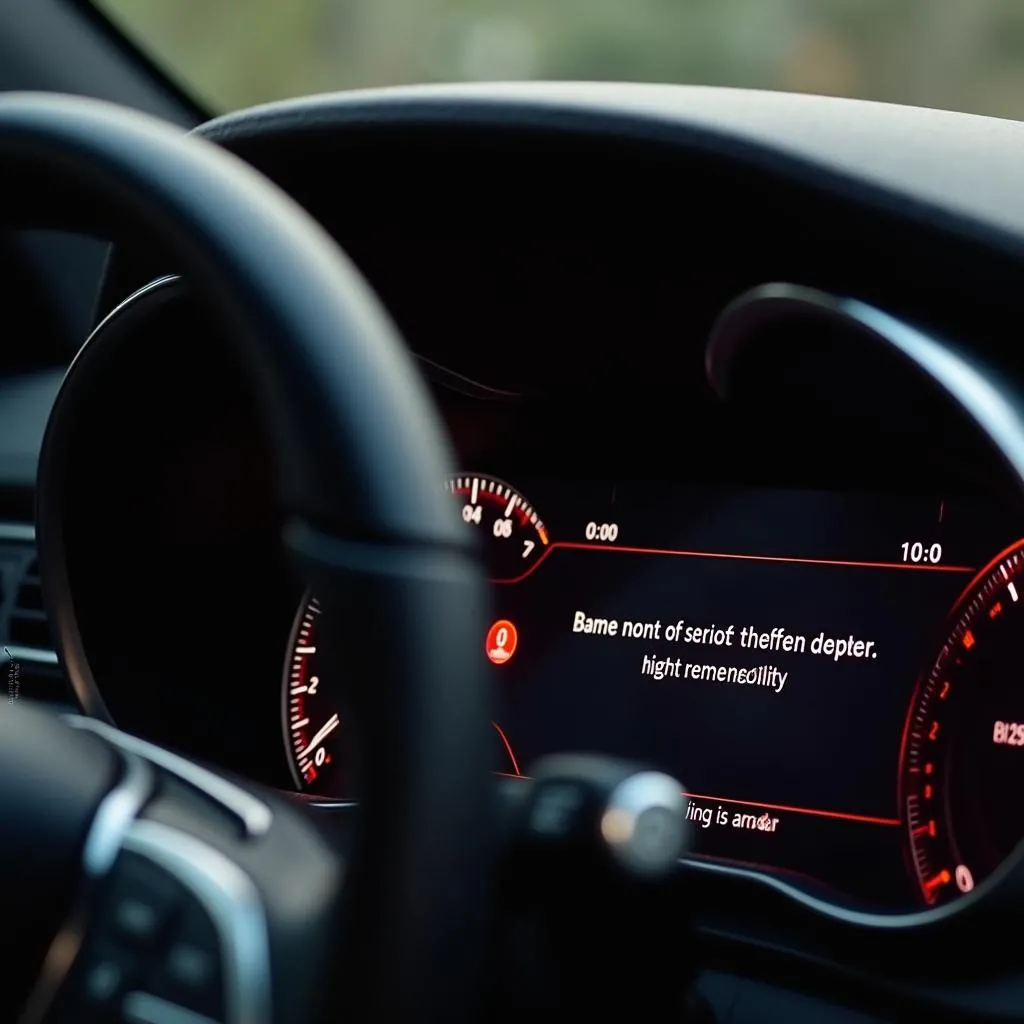The brake pad warning light on your Volkswagen Passat is a crucial safety feature. When illuminated, it signals that your brake pads have worn down to a point requiring immediate attention. Ignoring this warning can lead to expensive repairs and, more importantly, compromise your safety on the road. This comprehensive guide will explore the common causes, solutions, and preventative measures for dealing with a Volkswagen Passat brake pad warning light.
Understanding Your Passat’s Brake System and Warning Light
Your Passat utilizes a sophisticated braking system that relies heavily on brake pads. These pads press against the brake rotors to slow down or stop your vehicle. Over time, the friction material on the pads wears down.
The brake pad warning light is designed to alert you when this wear reaches a critical level. This light is often accompanied by a grinding noise when applying the brakes.
Common Causes of a Volkswagen Passat Brake Pad Warning Light
While worn brake pads are the most common culprit, other factors can trigger the warning light on your Passat:
- Worn Brake Pad Sensors: Many Passats utilize electronic sensors in the brake pads. These sensors trigger the warning light when the pad material wears thin.
- Damaged Brake Pad Sensor Wiring: A short circuit or break in the sensor wiring can also cause a false warning light.
- Low Brake Fluid Level: Low brake fluid can sometimes trigger the brake pad warning light, often accompanied by a soft or spongy brake pedal. Always check your brake fluid level if you experience this issue.
- Faulty ABS System: While less common, issues with the Anti-lock Braking System (ABS) can sometimes impact the brake pad warning light.
 Volkswagen Passat Brake Pad Sensor
Volkswagen Passat Brake Pad Sensor
Troubleshooting a Volkswagen Passat Brake Pad Warning Light
Before assuming you need new brake pads, it’s essential to troubleshoot the problem properly. Here’s a step-by-step guide:
- Check Your Brake Fluid: Begin by inspecting the brake fluid level in the reservoir. If it’s low, add the correct type of brake fluid as specified in your owner’s manual.
- Inspect Your Brake Pads: If the brake fluid level is normal, it’s time to inspect the brake pads themselves. You’ll likely need to remove a wheel to gain a clear view. If you’re not comfortable with this, consult a mechanic.
- Test the Brake Pad Sensor (If Applicable): If your Passat has electronic brake pad sensors, check for any visible damage to the sensor or its wiring. You can use a multimeter to test the sensor’s continuity.
- Scan for Trouble Codes: If you suspect an issue beyond worn brake pads, consider using an OBD-II scanner to read any stored trouble codes related to the braking system.
Replacing Your Volkswagen Passat’s Brake Pads
If your inspection reveals worn brake pads, replacing them is crucial. While this is a task some mechanically inclined individuals can handle, it’s often best to leave it to professionals, especially if you’re unfamiliar with your Passat’s specific braking system.
 Volkswagen Passat Brake Pad Replacement
Volkswagen Passat Brake Pad Replacement
When replacing brake pads, consider these additional factors:
- Rotor Condition: Inspect your brake rotors for any scoring, grooving, or excessive wear. If necessary, have your rotors machined or replaced along with the pads.
- Brake Fluid Flush: It’s good practice to flush your brake fluid every 2 years or 20,000 miles to maintain optimal braking performance.
- Choose Quality Parts: Opt for high-quality brake pads and rotors from reputable brands to ensure optimal braking performance and longevity.
Preventative Measures to Extend Brake Pad Life
Extending the life of your brake pads not only saves you money but also promotes safer driving. Here are some preventative measures:
- Avoid Aggressive Driving: Hard braking and rapid acceleration put excessive strain on your brakes, leading to premature wear.
- Coast When Possible: Anticipate stops and allow your vehicle to coast to a stop whenever possible, reducing wear on the brake pads.
- Lighten Your Load: Carrying excessive weight in your Passat forces your brakes to work harder.
- Regular Brake Inspections: Incorporate a visual brake pad inspection during your regular maintenance checks or oil changes.
 Volkswagen Passat Brake System Inspection
Volkswagen Passat Brake System Inspection
FAQs: Volkswagen Passat Brake Pad Warning Light
Q: Can I drive my Passat with the brake pad warning light on?
A: While technically possible to drive a short distance, it’s strongly advised against. Driving with worn brake pads significantly reduces your stopping power, putting you and others at risk.
Q: How much does it cost to replace brake pads on a Volkswagen Passat?
A: The cost varies depending on factors like labor rates, location, and the specific Passat model. On average, expect to pay between $150 to $300 per axle for parts and labor.
Q: How often should I replace my Passat’s brake pads?
A: There’s no one-size-fits-all answer, as driving habits significantly impact pad life. However, it’s a good rule of thumb to have them inspected every 10,000-12,000 miles and replaced as needed.
Q: Can I replace just the front or rear brake pads on my Passat?
A: While technically possible, mechanics often recommend replacing both axles (front and rear) simultaneously to ensure even braking performance.
Q: My brake pad warning light is on, but my brake pads look fine. What could be wrong?
A: If your brake pads appear to have sufficient life left, the problem could be a faulty brake pad sensor, damaged wiring, or low brake fluid. It’s best to have a mechanic diagnose the issue.
Ignoring Your Brake Pad Warning Light Can Be Costly
Addressing the brake pad warning light promptly on your Volkswagen Passat is crucial for your safety and the longevity of your vehicle. By understanding the common causes, following troubleshooting steps, and adopting preventative measures, you can keep your Passat’s braking system in peak condition and enjoy many miles of safe driving. Remember, if you’re ever unsure about your car’s braking system, consulting a qualified mechanic is always the safest course of action.


